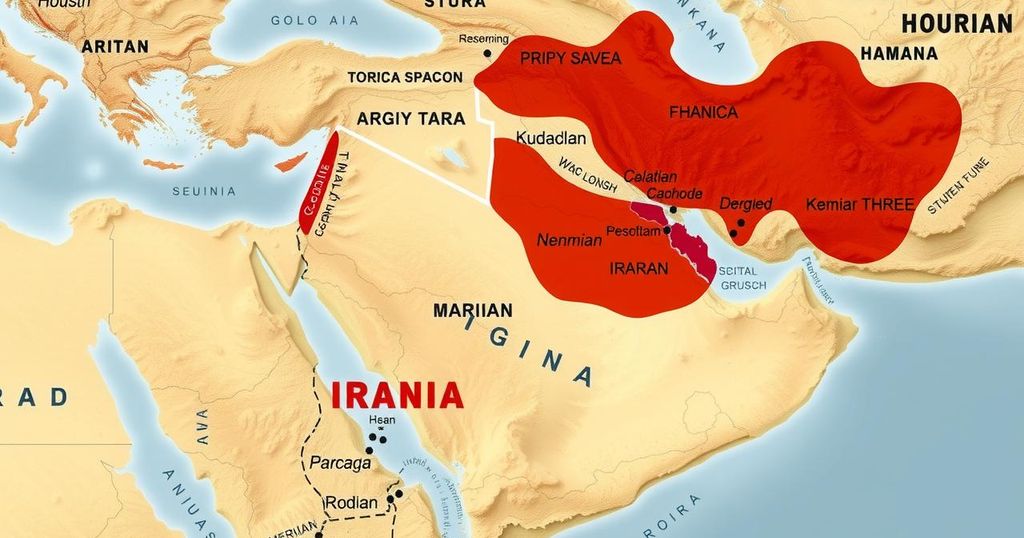Iran Exercises Control Over Houthi Forces Amid Regional Challenges

A recent report outlines Iran’s increasing control over the Houthi group in Yemen, indicating direct involvement from high-ranking officials in the IRGC and supervision from Supreme Leader Khamenei. This comes amid Iran’s decreased influence in other regions and follows numerous Houthi assaults on commercial shipping. The report supports President Trump’s threats against Iran, asserting their accountability for Houthi actions.
In a significant revelation regarding Iranian influence in the Middle East, a report has identified that Iran is increasingly relying on its connections with the Houthi group in Yemen amid setbacks in other regions. Intelligence gained from sources allied with the People’s Mojahedin Organization of Iran indicates that high-ranking officials in Iran’s Islamic Revolutionary Guard Corps (IRGC) are actively involved in Houthi operations. Furthermore, it is reported that Iranian Supreme Leader Ayatollah Ali Khamenei oversees these Houthi activities personally.
The report highlights that a senior commander from the Quds Force is reported to be issuing commands directly to the Houthis. This aligns with recent threats made by former President Donald Trump against Iran, emphasizing accountability for any actions taken against U.S. interests. Khamenei’s direct involvement in Houthi military and political matters showcases Iran’s efforts to maintain influence, particularly as its traditional spheres of power weaken.
Iran’s support for the Houthis has escalated significantly following the outbreak of conflict involving Hamas, with over 100 attacks on shipping vessels claimed by the Houthis occurring since the October 2023 terrorist attack on Israel. Amid heightened tensions, President Trump responded decisively, threatening overwhelming force against Houthi attacks and reiterating that Iran must be held responsible for their actions.
The report details that Brigadier General Abdolreza Shahlai is appointed to oversee all military, political, and economic aspects of Iranian involvement in Yemen, maintaining close ties to other influential figures such as Qassem Soleimani, who was assassinated in 2020. Moreover, the Iranian Embassy in Yemen is stated to be primarily controlled by Quds Force personnel, which raises questions regarding its operational legitimacy.
Ali Safavi, a spokesperson from the National Council of Resistance of Iran, emphasized that the Iranian regime is the principal instigator of regional conflict and instability. He advocates for international action against Iran, including the designation of the IRGC as a terrorist group and support for the Iranian people’s resistance against their government.
The report underscores Iran’s manipulation of proxy forces like the Houthis to further its strategic aims amidst declining influence in the region. With direct oversight from Khamenei, Iran displays a concerted effort to bolster its presence in Yemen while facing international scrutiny and backlash from American leadership. The implications of this involvement are significant for regional stability, emphasizing the need for a comprehensive policy response from the global community.
Original Source: www.foxnews.com








